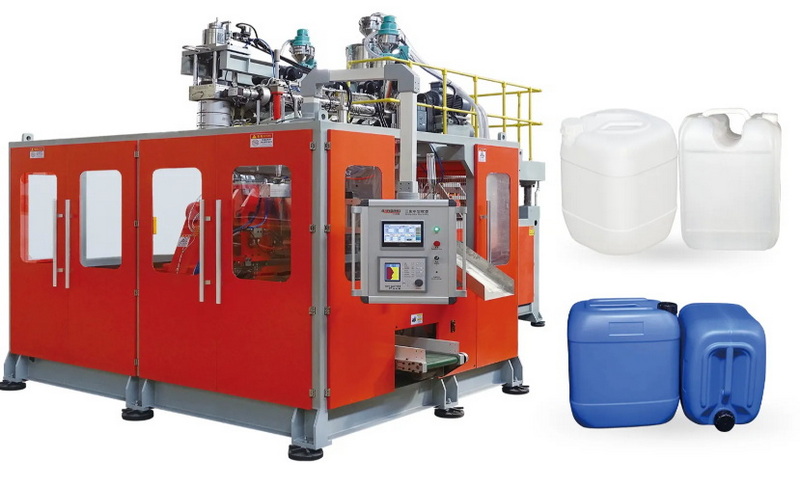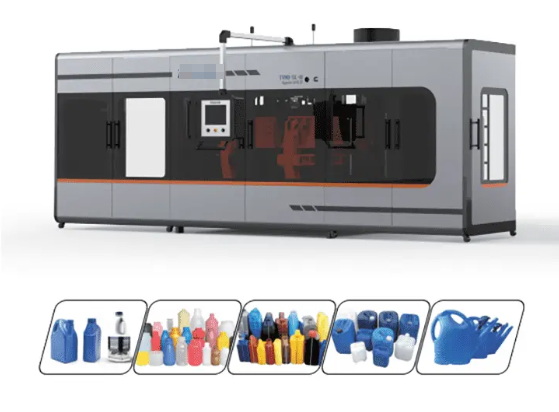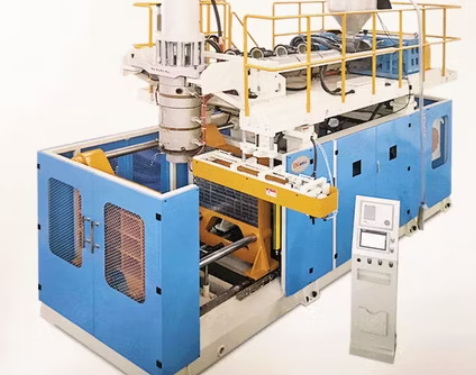Content Menu
● Introduction to Extrusion Blow Molding
>> Process Overview
● Key Considerations for Choosing a 30L Machine
>> 1. Machine Specifications
>> 2. Extrusion System
>> 3. Mold Design
>> 4. Automation and Control
>> 5. Safety and Maintenance
● Types of Extrusion Blow Molding Machines
>> Comparison of Machine Types
● Case Studies and Applications
>> Example: Production of 30L Jerry Cans
>> Example: Customized Bottle Production
● Advanced Features and Technologies
● Market Trends and Future Developments
● Conclusion
● FAQ
>> 1. What materials can be used with a 30L automatic extrusion blow molding machine?
>> 2. How does the automation level affect production efficiency?
>> 3. What are the key considerations for mold design in extrusion blow molding?
>> 4. How important is maintenance access in an extrusion blow molding machine?
>> 5. What are the advantages of using a co-extrusion blow molding machine?
Choosing the right 30L automatic extrusion blow molding machine is crucial for efficient production of plastic containers, such as jerry cans, bottles, and other hollow products. This article will guide you through the key considerations and steps involved in selecting the best machine for your needs.

Introduction to Extrusion Blow Molding
Extrusion blow molding (EBM) is a widely used manufacturing process for producing hollow plastic parts. It involves extruding a molten plastic tube, known as a parison, into a mold, which is then inflated with air to take the shape of the mold. This process is versatile and cost-effective, making it ideal for producing a variety of plastic containers.
Process Overview
1. Parison Formation: Plastic pellets are melted in an extruder and formed into a continuous hollow tube called a parison. This process requires precise temperature control to ensure uniform melting and extrusion.
2. Mold Closure: The parison is captured in a mold, which closes around it. The mold must be designed to fit the specific shape and size of the container being produced.
3. Inflation: Compressed air is blown into the parison, expanding it against the mold walls. This step requires careful pressure control to achieve the desired shape and prevent defects.
4. Cooling and Ejection: The plastic cools and solidifies, and the mold opens to eject the finished product. Efficient cooling systems are essential for maintaining production speed.
Key Considerations for Choosing a 30L Machine
When selecting a 30L automatic extrusion blow molding machine, several factors must be considered to ensure optimal performance and efficiency.
1. Machine Specifications
- Output Capacity: Ensure the machine can produce at least 400 pieces per hour, depending on your production needs. Higher output capacities are beneficial for large-scale production.
- Material Compatibility: The machine should be able to handle materials like PE, PP, HDPE, and PVC, depending on the specific application and product requirements.
- Die Size and Type: A suitable die size (e.g., ∮280~340mm) is crucial for producing containers of the desired size. The die should also be durable and easy to clean.
2. Extrusion System
- Heating Power: Adequate heating power (e.g., 5~7KW) is necessary for consistent melting and extrusion. Multiple heating zones provide better temperature control.
- Number of Heating Zones: Typically, 3-4 zones provide optimal temperature control, ensuring uniform melting and reducing the risk of overheating or underheating.
3. Mold Design
- Mold Material: Durable materials like steel or aluminum are preferred for longevity. The mold should also be designed for easy maintenance and cleaning.
- Cavity Design: Ensure the mold cavities are designed to produce containers with precise dimensions and features. This includes considerations for neck size, handle placement, and any other specific design elements.
4. Automation and Control
- Automatic Features: Look for machines with automated processes for parison formation, mold closure, and product ejection. Automation increases efficiency and reduces labor costs.
- Control System: A user-friendly control system allows for easy operation and adjustment of parameters like temperature and pressure. This is crucial for optimizing production conditions.
5. Safety and Maintenance
- Safety Features: Ensure the machine has safety features to prevent accidents, such as emergency stops and protective guards. These features protect operators and prevent damage to the machine.
- Maintenance Access: Easy access to components for maintenance and repair is essential. This reduces downtime and ensures that the machine operates at optimal levels.

Types of Extrusion Blow Molding Machines
There are various types of EBM machines available, including:
- Semi-automatic: Requires manual intervention for some processes. This type is suitable for smaller production runs or when flexibility in production is needed.
- Fully Automatic: Automates all steps from parison formation to product ejection. Fully automatic machines are ideal for high-volume production and offer significant efficiency gains.
- Co-extrusion: Allows for the production of multi-layer containers. This is beneficial for creating products with enhanced barrier properties or aesthetic appeal.
Comparison of Machine Types
| Feature | Semi-automatic | Fully Automatic | Co-extrusion |
| Automation Level | Partially automated | Fully automated | Fully automated with layer control |
| Production Speed | Lower | Higher | Higher with complex layering |
| Cost | Lower | Higher | Highest due to complexity |
Case Studies and Applications
Example: Production of 30L Jerry Cans
A company producing 30L jerry cans would require a machine capable of handling HDPE material with a die size suitable for the can's dimensions. The machine should also have a high output capacity to meet demand. Additionally, features like automatic mold closure and ejection are essential for efficient production.
Example: Customized Bottle Production
For customized bottle production, the machine must be able to handle various plastic materials and have flexible mold design options to accommodate different bottle shapes and sizes. This includes considerations for neck sizes, handle placement, and any other specific design elements. A co-extrusion machine could be beneficial for creating multi-layer bottles with enhanced durability or aesthetic appeal.
Advanced Features and Technologies
Modern 30L automatic extrusion blow molding machines often incorporate advanced technologies to enhance efficiency and product quality. These include:
- Energy-saving Systems: Some machines are equipped with energy-saving systems that reduce power consumption without compromising performance.
- Advanced Control Systems: Modern control systems can integrate with factory management software, providing real-time monitoring and optimization of production processes.
- Robotics Integration: Some machines can be integrated with robotic systems for automated handling and packaging of finished products, further increasing efficiency.
Market Trends and Future Developments
The market for extrusion blow molding machines is evolving, with trends towards increased automation, sustainability, and customization. Future developments are likely to focus on:
- Sustainable Materials: Machines capable of handling bioplastics and recycled materials will become more prevalent as companies seek to reduce their environmental impact.
- Digitalization: Integration with Industry 4.0 technologies will enable more efficient production processes and better supply chain management.
Conclusion
Choosing the best 30L automatic extrusion blow molding machine involves careful consideration of machine specifications, extrusion system capabilities, mold design, automation level, and safety features. By understanding these factors and matching them to your production needs, you can optimize your manufacturing process and produce high-quality plastic containers efficiently.

FAQ
1. What materials can be used with a 30L automatic extrusion blow molding machine?
The machine can handle various materials such as PE, PP, HDPE, and PVC, depending on the specific application and product requirements.
2. How does the automation level affect production efficiency?
A fully automated machine increases production speed and reduces labor costs by automating all steps from parison formation to product ejection.
3. What are the key considerations for mold design in extrusion blow molding?
Mold design should focus on durability, precise cavity dimensions, and features that match the desired product specifications.
4. How important is maintenance access in an extrusion blow molding machine?
Easy maintenance access is crucial for reducing downtime and ensuring that the machine operates at optimal levels by facilitating quick repairs and adjustments.
5. What are the advantages of using a co-extrusion blow molding machine?
Co-extrusion machines allow for the production of multi-layer containers, which can enhance product durability, barrier properties, and aesthetic appeal.






















